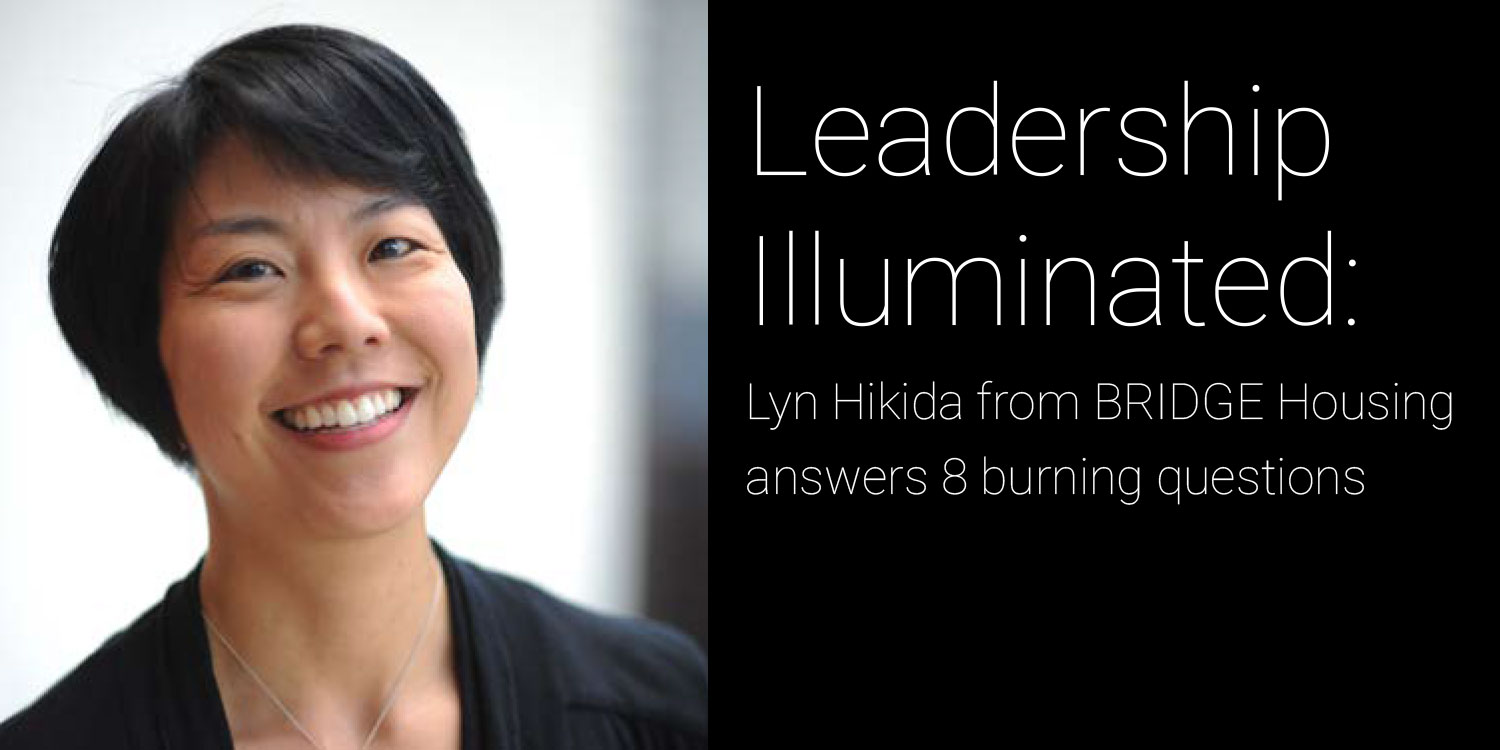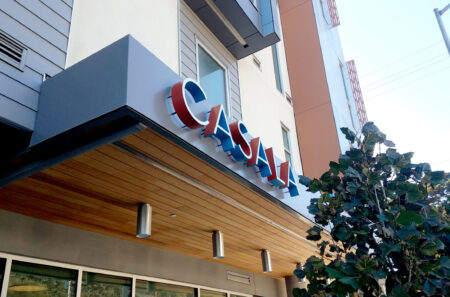
Leadership Illuminated: Lyn Hikida, Vice President of Communications, BRIDGE Housing answers 8 burning questions
[Argus talks with clients every month about things that matter.]
Argus: What is your favorite thing about your job?
LH: Working with smart and motivated people who are all in pursuit of the same mission. I find it incredibly gratifying to see how our work together improves peoples’ lives in a really tangible way.
I also love that BRIDGE is so dynamic and I am constantly learning new things, whether it be new types of buildings or new populations and communities. I find that very exciting.
Argus: What would you tell graduates about this work?
LH: Affordable housing is extremely complex, so you really need to have a passion for the mission and be able to solve tough problems over sometimes very long periods of time. You need patience and perseverance. There are a lot of challenges: regulations, bureaucracy, market changes, NIMBY’s who don’t want affordable housing in their neighborhoods, but if you are up for the challenge, the results are so rewarding.
Argus: What are the most important decisions you make as a leader of your organization?
LH: I influence and help shape BRIDGE’s brand and uphold our reputation. This plays out in a lot of different ways: our marketing collateral, how we operate on social media and developing and maintaining the BRIDGE voice. It’s how we plan and manage our special events. It’s how people feel when they visit and interact with a BRIDGE property. It extends to the way we respond to crises. I oversee pieces that uphold our brand and reputation. It’s not that any one decision I make is going to change everything, but it’s upholding our brand and our voice and identity and making sure that that flows throughout the company.
Argus: What would you like to share about your company that not everyone knows?
LH: BRIDGE has been around for 35 years and is very well known as a developer. We have been working to raise our profile for all the other things that we do as an owner, as a property manager, as a creator of mixed use developments and mixed income housing and especially of our work as a community developer. So, doing the housing, but in a broader neighborhood context that takes into consideration things like retail and parks and quality schools, healthy food options, job opportunities and transit. Not just building a very nice building for 100 families or households and calling it a day, but really looking at how can we put a building into the context of a neighborhood and even bring something of benefit to the neighborhood. Maybe work with a partner to bring in retail space that is needed or childcare. Amenities that could benefit the community beyond just our residents.
Argus: What is the value of having your team share a common vision of the brand?
LH: Affordable housing is complex and it’s also really competitive. At BRIDGE, we share a common mission, so I think that sharing a common brand vision makes us much stronger and more consistent. It’s also a competitive advantage. It is an advantage for the team to be able to put our best foot forward together in sync so that we are consistent, which is an important component of building trust and reminding people that our reputation isn’t just a reputation, but there is substance behind it.
Argus: How do you encourage others in your organization to communicate your core value and your brands?
LH: Through their actions and words. Core values come through in everything we do. It’s how we communicate with people, how we respond to requests for proposals, how we interact with residents, how we interact with neighbors, how we partner with the public and private sectors to advance our mission. We have so many partners, people from city agencies, state agencies, county agencies, etc., but then also the private sector. All the financial partners, the architects and consultants and neighborhood organizations, service coordination partners…. It’s very, very complex and through all of those interactions we want to be consistent and express our core values as we work with all of these partners.
As the organization grows, it becomes more challenging. We are working in new geographies with partners who are brand new to BRIDGE, so there is a lot of learning and education that happens. It has also become more challenging because of the types of developments we are working on. They have become more complex and we are serving people with very different needs, from frail seniors to people might be coming out of chronic homelessness to children coming out of foster care. It’s all very needed and we are helping to fulfill the need, but it requires a lot of learning. Our portfolio is so much more diverse than it was many years ago both in the types of building we build and the people we serve.
Argus: How do you ensure that your organization aligns with your core values?
LH: At BRIDGE, our core values are actually part of our performance review process. There is an expectation that employees with strive to reflect our values. You are evaluated on how well you live up to our values. It’s built in. We also incorporate our core values into internal activities like the staff retreat. Everyone across the whole organization is brought together for one day of learning, networking and catching up with colleagues. Core values are always part of the day, either through the theme or through the sessions. We also have a monthly staff newsletter we can use to remind people and give examples.
Argus: What challenges is your industry facing at this time?
LH: Well, if you read the news, you know that the need for affordable housing is higher than ever, especially in the high cost markets that we work in on the West Coast: San Diego, LA, San Francisco Bay Area, Portland and Seattle. Elected officials and cities are making housing and homelessness issues a priority and I think they are doing this because it affects everything — the economy, jobs, traffic congestion, quality of life. The challenge is that at the same time, the funding resources are scarce and costs are rising. Construction costs, land costs, labor costs, materials….it’s tough out there and the funding resources are scarce. What is really hopeful is that there are a lot of different kinds of potential solutions that are being put forward at state and local legislative levels. We will have to see how it all plays out in the weeks and months ahead, but there is incredible political will right now because I think governments are seeing the far reaching effects of the housing crisis. It’s driving up homelessness numbers, employers can’t find employees to hire because those employees don’t have anywhere to live.

Join Us!
Join our mailing list to receive strategies, practical advice, news and helpful resources delivered right to your inbox.

